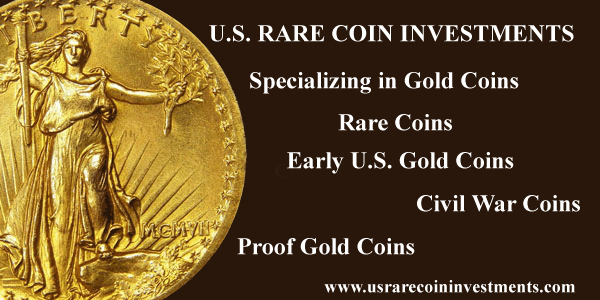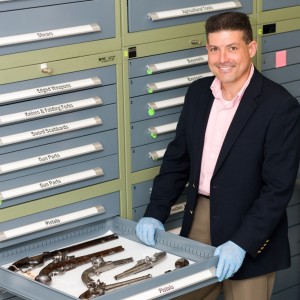
PREV ARTICLE
NEXT ARTICLE
FULL ISSUE
PREV FULL ISSUE
ARTICLE INTERVIEWS COLONIAL WILLIAMSBURG'S GOLDSTEINAn article published November 22, 2016 in Antiques and the Arts Weekly is a Question & Answer session with Erik Goldstein,
curator of numismatics at the Colonial Williamsburg Foundation. -Editor
What first peaked [sic] your interest in history and when? I was a really odd kid, and started to collect things like coins and rocks before I was 5 years old. Much to my parent’s concern, I even had a bound-up Barbie doll that I used to bury in the garden just so I could dig up a mummy. Was I going to be an archaeologist or a psychopath? While the former option came close, I chose to dedicate my life to really interesting old things. For instance, the idea that you can hold a coin in your hand and know where it was made and when it was made… set my imagination going crazy! Take the Continental Currency paper money bills of the 1770s… these were in everyone’s pockets and were the very things that financed the American Revolution. Coins, antique weaponry and iron… you have quite eclectic interests. Are there any common threads among these besides being made of metal? I don’t know if there are. People who collect old coins sometimes collect old weapons. The one thing that ties the two together, if you look at the Seventeenth through the Nineteenth Centuries, is that the only things national governments produced were military weapons and coins. Maybe it’s because they were mass produced in their times and they are a researchable and a tangible link to contemporary events, like a Pine Tree shilling is a tangible link to the late Seventeenth Century Massachusetts of Salem “Witch Trials” fame. Which figure in the Colonial American period most interests you and why? I’m not a “politician’s” guy, so if I could go back in time and have a beer with anyone from the Revolutionary period, it would be Ben Franklin or “Bloody” Banastre Tarleton, the notorious British cavalry commander. Tarleton was brutally effective in combat, and would be an interesting character to talk to. Franklin was a brilliant wiseguy, and I’m sure he was a real hoot to hang around with. Yes, that said "peaked" instead of "piqued". Sheesh. Nice article otherwise. While we'd prefer more on the
numismatic side, it's interesting to learn about some of the other great artifacts he gets to work with. -Editor
To read the complete article, see:  Wayne Homren, Editor The Numismatic Bibliomania Society is a non-profit organization promoting numismatic literature. See our web site at coinbooks.org. To submit items for publication in The E-Sylum, write to the Editor at this address: whomren@gmail.com To subscribe go to: https://my.binhost.com/lists/listinfo/esylum All Rights Reserved. NBS Home Page Contact the NBS webmaster 
|
